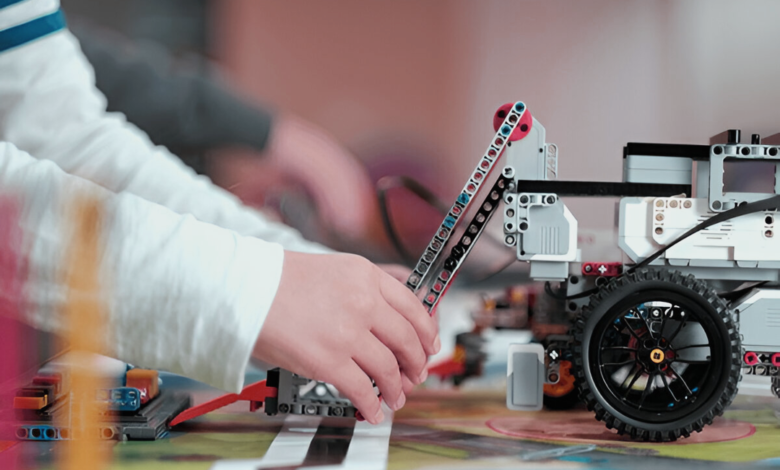
Science competitions provide an excellent platform for Pakistani students to showcase their talent, innovate, and compete on national and international levels. These contests not only enhance critical thinking and problem-solving skills but also open doors to scholarships, research opportunities, and global recognition. However, excelling in such competitions requires strategic preparation, access to resources, and mentorship. This article explores practical steps Pakistani students can take to improve their performance in science competitions, from selecting the right contests to mastering presentation skills.
Pakistani students have immense potential to shine in science competitions, given their creativity and passion for innovation. However, many struggle due to a lack of guidance, limited resources, and insufficient exposure to competitive environments. To bridge this gap, students must adopt a structured approach understanding competition requirements, strengthening foundational knowledge, and engaging in hands-on experiments. Additionally, mentorship from teachers and participation in local science clubs can significantly boost confidence.
How Pakistani Students Can Excel in Science Competitions
Understanding Science Competitions
Science competitions come in various forms, including Olympiads, science fairs, research-based contests, and innovation challenges. Each competition has unique criteria, judging standards, and preparation methods. For instance, the International Science Olympiad (ISO) focuses on theoretical knowledge and problem-solving, while events like the Intel International Science and Engineering Fair (ISEF) emphasize original research projects.
Building a Strong Foundation in Science
Success in science competitions begins with a solid understanding of core scientific concepts. Students should focus on mastering subjects like physics, chemistry, biology, and mathematics through textbooks, online courses, and interactive learning platforms. Khan Academy, Coursera, and local educational YouTube channels can supplement classroom learning. Schools and colleges should encourage students to participate in quizzes, debates, and science clubs to reinforce their knowledge.
Experimentation Skills
Mastering experimentation skills is crucial for Pakistani students aiming to excel in science competitions. Developing a structured approach from hypothesis formation to data analysis ensures reliable and replicable results. Hands-on practice with basic lab techniques, even using household materials, builds confidence before tackling advanced experiments.
Enhancing Presentation
A well-researched project is only as good as its presentation. Judges often evaluate not just the scientific merit but also how effectively students communicate their ideas. Pakistani students should practice public speaking, learn to create engaging PowerPoint slides, and refine their report-writing skills. Additionally, watching winning presentations from international contests can offer insights into effective storytelling and data visualization techniques.
Communication Skills
Strong communication skills are vital for Pakistani students to effectively present their scientific ideas in competitions. Clear articulation, confident public speaking, and well-structured reports help judges understand the depth of their research. Students should practice explaining complex concepts simply, using visual aids like slides or posters to enhance their presentations.
Seeking Mentorship and Collaboration
Mentorship plays a crucial role in guiding students through the complexities of science competitions. Teachers, professors, and industry professionals can provide expert advice, recommend resources, and help refine project ideas. Collaboration with peers can also lead to innovative ideas team-based competitions often benefit from diverse skill sets and shared knowledge.
Developing Research
Many high-level science competitions require original research or innovative projects. Pakistani students should cultivate a habit of curiosity, asking questions about the real world problems and seeking scientific solutions. Schools can facilitate this by establishing science labs with basic equipment and encouraging project-based learning. Students should also explore local universities and research centers for mentorship opportunities.
Leveraging Technology
In today’s digital age, students have access to countless online tools that can aid their preparation. Websites like arXiv.org and ResearchGate provide access to scientific papers, while simulation software like MATLAB and Python can assist in complex calculations. Virtual labs and open-courseware from institutions like MIT and Stanford offer advanced learning opportunities.
Online Resources
Pakistani students can leverage free online resources like Khan Academy, Coursera, and MIT OpenCourseWare to strengthen their STEM foundations for competitions. Platforms like arXiv and ResearchGate provide access to cutting-edge research papers, while virtual lab tools such as PhET Simulations enable hands-on experimentation without physical equipment. YouTube channels like Veritasium and Vsauce offer engaging scientific explanations,
Overcoming Financial
One of the biggest challenges for Pakistani students is the lack of funding for advanced equipment or travel to international competitions. Crowdfunding, scholarships, and sponsorships from local businesses or NGOs can help mitigate these issues. Schools and government bodies should also invest in science education by providing grants and organizing national-level contests to identify and nurture talent.
Logistical Barriers
One of the biggest challenges Pakistani students face in science competitions is overcoming logistical barriers, including limited access to advanced lab equipment, financial constraints for competition fees and travel, and lack of exposure to international contest standards. Many talented students from smaller cities or underfunded schools struggle to participate due to the high costs of materials, specialized tools, or travel expenses for national and international events.
Staying Motivated
Not every competition will result in victory, and setbacks are part of the learning process. Pakistani students should view failures as opportunities to improve rather than reasons to quit. Maintaining a growth mindset, setting realistic goals, and celebrating small achievements can keep motivation high. Peer support groups and inspirational stories of past winners can also provide encouragement during challenging times.
Handling Failure
Failure is an inevitable part of competing in science contests, but Pakistani students can turn setbacks into stepping stones by adopting a growth mindset. Instead of viewing losses as defeats, they should analyze feedback, identify weaknesses, and refine their approach for future competitions.
Read More: How to Register a Startup in Pakistan Step-by-Step Guide
Conclusion
Pakistani students have the potential to achieve remarkable success in science competitions with the right approach. By building a strong foundation in science, engaging in hands-on research, seeking mentorship, and utilizing technology, they can compete at the highest levels. Schools, teachers, and policymakers must also play an active role in providing resources and opportunities to nurture young talent. Researching past winners, reviewing judging rubrics, and consulting teachers can help in selecting the right contest.
The journey to excelling in science competitions requires persistence, creativity, and continuous learning. With determination and the right strategies, Pakistani students can not only participate but also win prestigious awards, bringing pride to their country and contributing to global scientific advancements. Pakistani students should begin by identifying competitions that align with their interests and strengths.
FAQs
What are the best science competitions for Pakistani students?
Pakistani students can participate in Olympiads (Physics, Chemistry, Biology), Intel ISEF, Google Science Fair, and local events like the National Science Talent Contest.
How can students find mentors for science competitions?
They can approach school teachers, university professors, or join science clubs and online forums where experts guide young researchers.
What if a student lacks access to advanced lab equipment?
Many experiments can be conducted with basic materials, and online simulation tools can supplement hands-on lab work. Many groundbreaking experiments in science history began with simple tools
How important are presentation skills in science competitions?
Extremely important judges assess not just the project but also how well students explain their research and findings. Clear explanations, confident delivery, and engaging visuals often make the difference between winning and losing.
Can students participate in international competitions online?
Yes, many competitions now offer virtual participation, reducing travel costs and increasing accessibility. Virtual contests, digital submissions, and remote judging have made prestigious events more accessible than ever.



